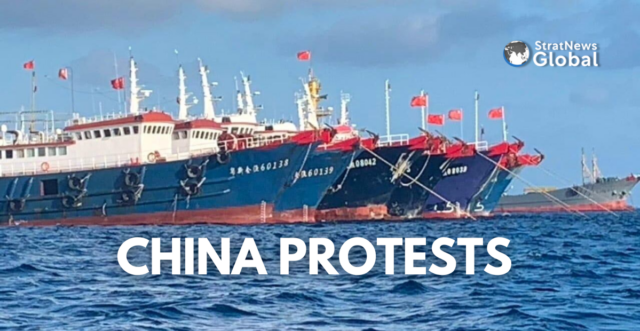China summoned the Philippines’ ambassador on Friday, voicing strong objections to two new laws recently signed by Philippine President Ferdinand Marcos Jr. The Maritime Zones Act and the Archipelagic Sea Lanes Act assert Manila’s maritime rights over disputed regions in the South China Sea, areas that China claims as part of its own territorial waters. China’s foreign ministry spokesperson, Mao Ning, described these laws as a “serious infringement” on China’s sovereignty.
The Philippines’ Assertion of Maritime Sovereignty
President Marcos signed the new legislation as a means to bolster the Philippines’ territorial claims and safeguard the nation’s exclusive economic zone (EEZ). The laws define maritime entitlements and establish designated sea lanes and air routes, reinforcing the Philippines’ commitment to upholding an international rules-based order. Marcos stressed that the new measures would protect Filipino fishers and enable peaceful resource exploitation, stating, “Our people…should be able to pursue their livelihood free from uncertainty and harassment.”
However, China’s foreign ministry insists that the legislation “illegally includes” Chinese-claimed territories, such as Scarborough Shoal and the Spratly Islands (referred to as Huangyan Island and Nansha Islands in Chinese). Beijing urged the Philippines to respect China’s “territorial sovereignty and maritime rights” and refrain from “unilateral actions” that could intensify regional disputes.
Regional and Global Implications
The Philippines’ laws aim to reinforce the 2016 Hague tribunal ruling, which rejected China’s expansive claims over the South China Sea, a decision backed by the United States. However, Beijing has consistently dismissed this ruling and has enacted its own domestic laws to solidify its claims. In 2021, China introduced a coast guard law permitting its forces to detain foreigners suspected of trespassing in the South China Sea, heightening regional tensions.
Senator Francis Tolentino, an author of the new Philippine legislation, acknowledged the challenges of enforcing these laws amid China’s opposition. Although he doesn’t anticipate an immediate easing of tensions, Tolentino believes the international support these laws garner will strengthen the Philippines’ position.
The South China Sea dispute remains complex, as China uses its coast guard fleet to assert dominance, frequently clashing with neighbouring countries. As the Philippines seeks to uphold its sovereignty, support from the international community may be key in its ongoing struggle to protect its maritime rights.
(with Inputs from reuters)
Research Associate at StratNewsGlobal, A keen observer of #China and Foreign Affairs. Writer, Weibo Trends, Analyst.
Twitter: @resham_sng





